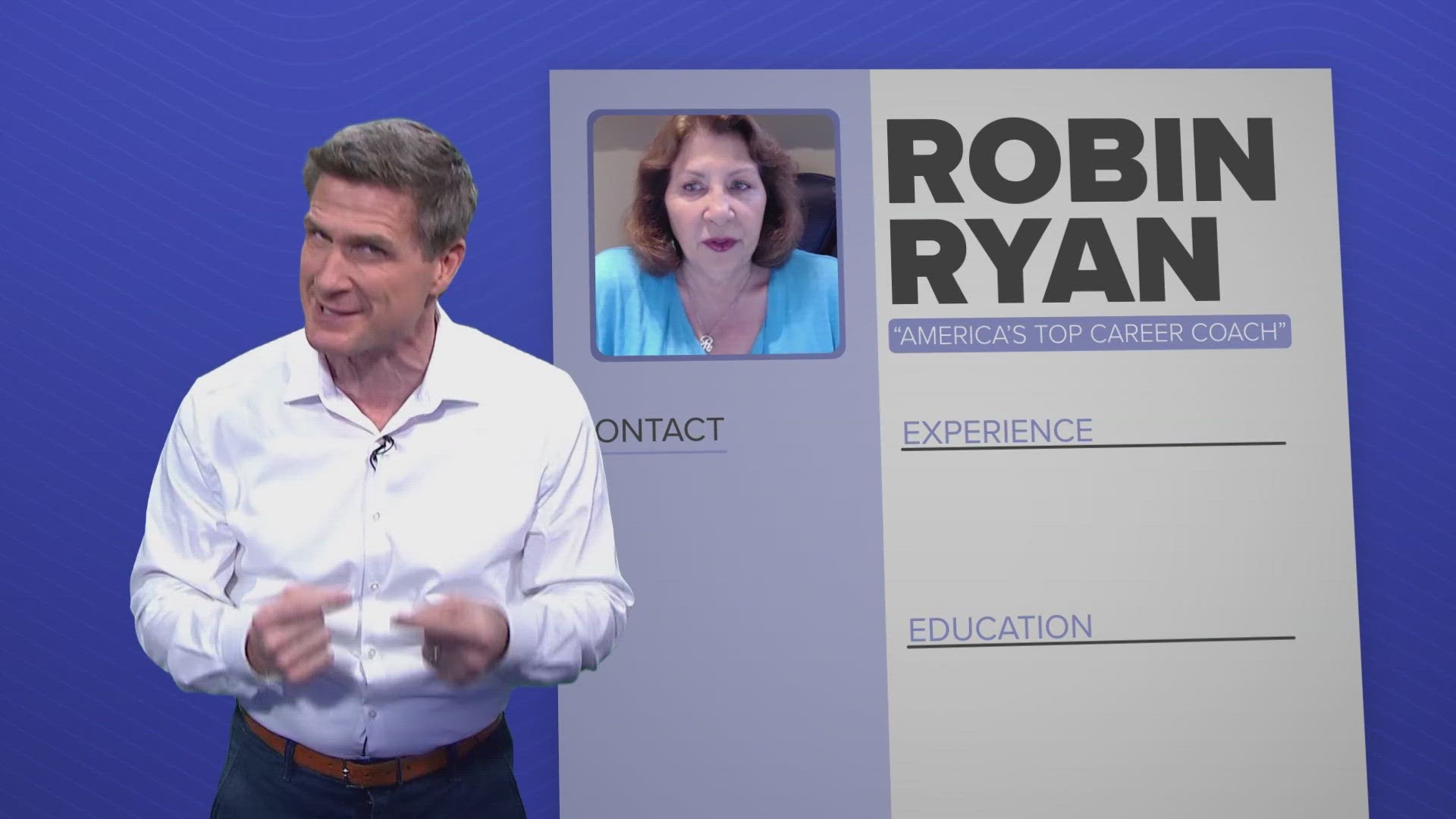TEXAS, USA — We just went to résumé boot camp with Robin Ryan, who has been called ‘America’s top career expert’. But every time we talk to her, we end up with a sequel.
Ryan has extra advice about job searches and résumés, specifically for older and younger workers. And she is telling most applicants that it may be time to start practicing cover letter skills again.
For younger people in the labor market
One of the biggest complaints we hear from younger applicants who are trying to get their career underway is that they don’t have the experience that so many job descriptions require.
If you are looking to become more experience-rich, Ryan reminds you, “Employers do like to see internships. They’re really important. If you're in college, absolutely make the effort to get some.”
Also, if you don’t have a lot of experience, Ryan recommends one job site in particular: Glassdoor.
“Glassdoor focused on jobs for people with about five years or less of experience," she said.
But she says you should go a step further than just looking at that one site, or even several like it. Ryan says that as you scour websites like Glassdoor, Indeed and LinkedIn, make a list of companies that appeal to you on those platforms.
Then, “Go directly to their websites. Large companies are going to have hundreds more jobs on their own website than you're ever going to see on any of those search engines. So don't miss those," she says.
More of Robin Ryan’s writings for younger applicants (and their parents who are trying to help them) can be found by clicking here and clicking here.
For older applicants
After years of working with job candidates, Ryan can confirm a frustrating truth: “Age discrimination, unfortunately, exists. So… chop your work history down on your résumé to 15 years. Don't go back further than that. Drop (your college attendance date or graduation date) if it was before 2005. You don't want anything that shows more than 20 years."
If you keep it lengthy:
- Nobody's going to read it.
- You're going to look like a dinosaur. So, it's not a good idea.
She says all those same rules also apply to your LinkedIn profile. Also, Ryan warns older applicants to look out for technology that might not look so current.
“For example, we don't want to see Hotmail or AOL emails. We want to see Gmail. We want to know that you know how to use Slack, or you know how to use Excel," said Ryan.
Perhaps ask someone younger to look over your résumé for technology that might seem outdated.
More of Robin Ryan’s writings for older applicants can be found by clicking here and clicking here.
For the young and the older (and everyone between)
If you are looking through job postings and figuring out that you need more skills or new skills, Ryan suggests you might want to consider getting certified.
“Take some certifications. Maybe it's in project management, maybe it's in e-commerce, maybe it's in design. But these will add to the education you have. Coursera is an online program that offers all kinds of programs and courses and certificates," she says.
Even if you have the education, the skills, the experience, and the killer résumé laying it all out, there is one more thing you may be neglecting. During the pandemic recovery, the scarcity of workers to fill all the open positions meant that cover letters didn’t matter as much as they had before.
Well, even though the job market is still hot, Ryan says the cover letter has made a comeback.
“Oh yeah, it can be very influential if it's well written. And the one thing hiring managers always tell me: I see that as your true communication skills, because I know people can help you write the résumé, but very few people will get help on the cover letter," she says.
She says some industries still don’t make much of cover letters.
“It's not needed in every single job. The tech world doesn't look at them, doesn't care about them," said Ryan.
But many other hiring managers want to read about you.
So, Ryan cautions that you shouldn’t use a form letter; be specific, be personal, be passionate.
“If it's a nonprofit job, an executive leadership job, something in education, they are areas where you can really point out skills. Perhaps you are in marketing, or you are in sales, and you want to drive home some of the things you've done. Nonprofit fundraisers definitely want a cover letter because you can hit really quickly on some of your biggest accomplishments, and you can also add in some extra information… personal information," says Ryan.
She says you want to give something extra that you don’t have space for on your résumé.
“No formula… nothing generic. Don't start out with ‘oh, I saw your ad on Indeed'."
Ryan says you must hit ‘em hard right off the top.
“Open with a powerful sentence that says I have six years of experience, blah blah blah, so that you capture my attention very quickly," she says.
And once you get in like that, get out the same way.
“They should be written so that they are quickly scanned. So, not 100 paragraphs. I have seen some come through…they're four pages! No one is going to read four pages," says Ryan.
Robin Ryan’s guidance on cover letters can be found by clicking here and clicking here.

